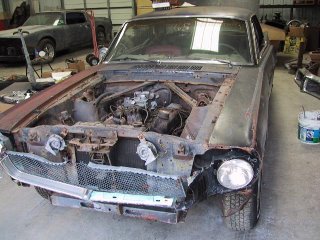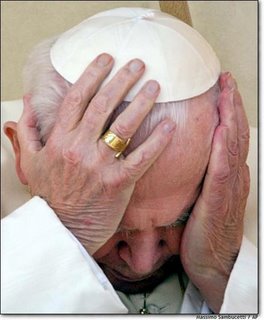
Eight of us from Reidland went to Kansas City a couple of weeks ago. A very powerful image was presented to us: Three Ford Mustang convertible cars. Two of them were 1965 models, one taken out of a junkyard - rusted, no engine, rotting interior; the other was restored to mint condition. The third was a 2006 model.

It was a good image for the United Methodist Church; 1965 was the last year our denomination experienced any numerical growth – and we are very much looking like the ’65 Mustang that came out of the junkyard.
That leaves two models: (1) we can restore the old car to mint condition with some investment of time, money, and TLC, or (2) we can buy the new car.

The preacher, Adam Hamiliton, noted the restored ’65 looked great and was fun to drive… for a short while. Even though it is restored, however, it doesn’t brake as well as modern cars, is more difficult to steer, has no air bags or even shoulder seat belts. The 2006 model has modern steering and braking, modern safety applications, and can be driven comfortably for hours at a time. It still looks like a Mustang, taking the best from the old and adding modern elements to make a car that’s safe and useful today.
There are certainly ties to the past we need to keep, in order to learn about the eternal faith and to remember those saints who have gone before and upon whose shoulders we stand. However, we also need to embrace change in the church as well as we embrace it in our world. I don’t know many folks who want to go back to telephone party lines, hand-powered drills in the shop or handmixers in the kitchen, hanging clothes out on the line, or lighting our houses at night by oil lamp. The church should be no different.
What does that mean for us and our church’s future? It means a lot of prayer – talking and listening to God. And it means sacrificing our own attitudes and minds and having the mind of Christ. If Christ can sacrifice his life for us, we have to ask ourselves what we’re willing to give up and sacrifice.
Even if it is a ’65 Mustang.
Pax,
Sky+
